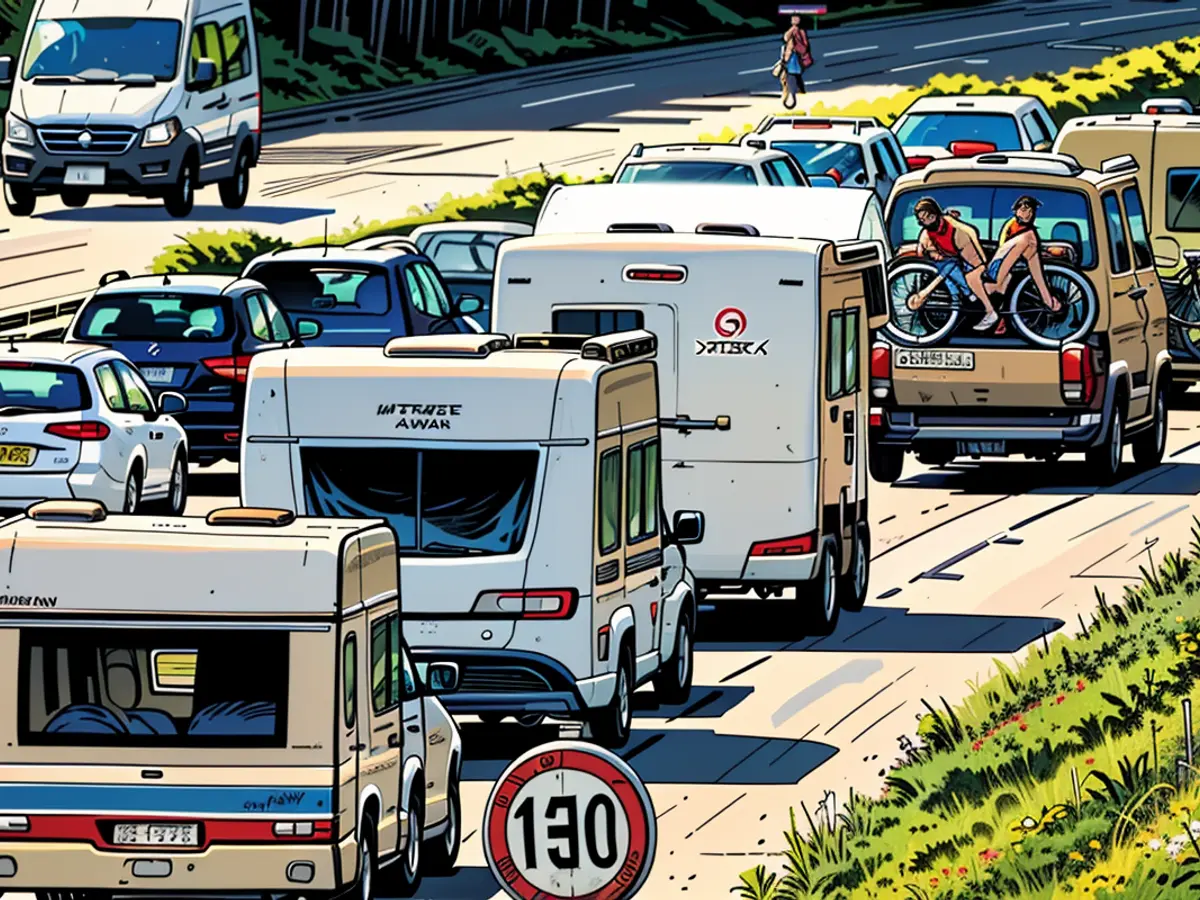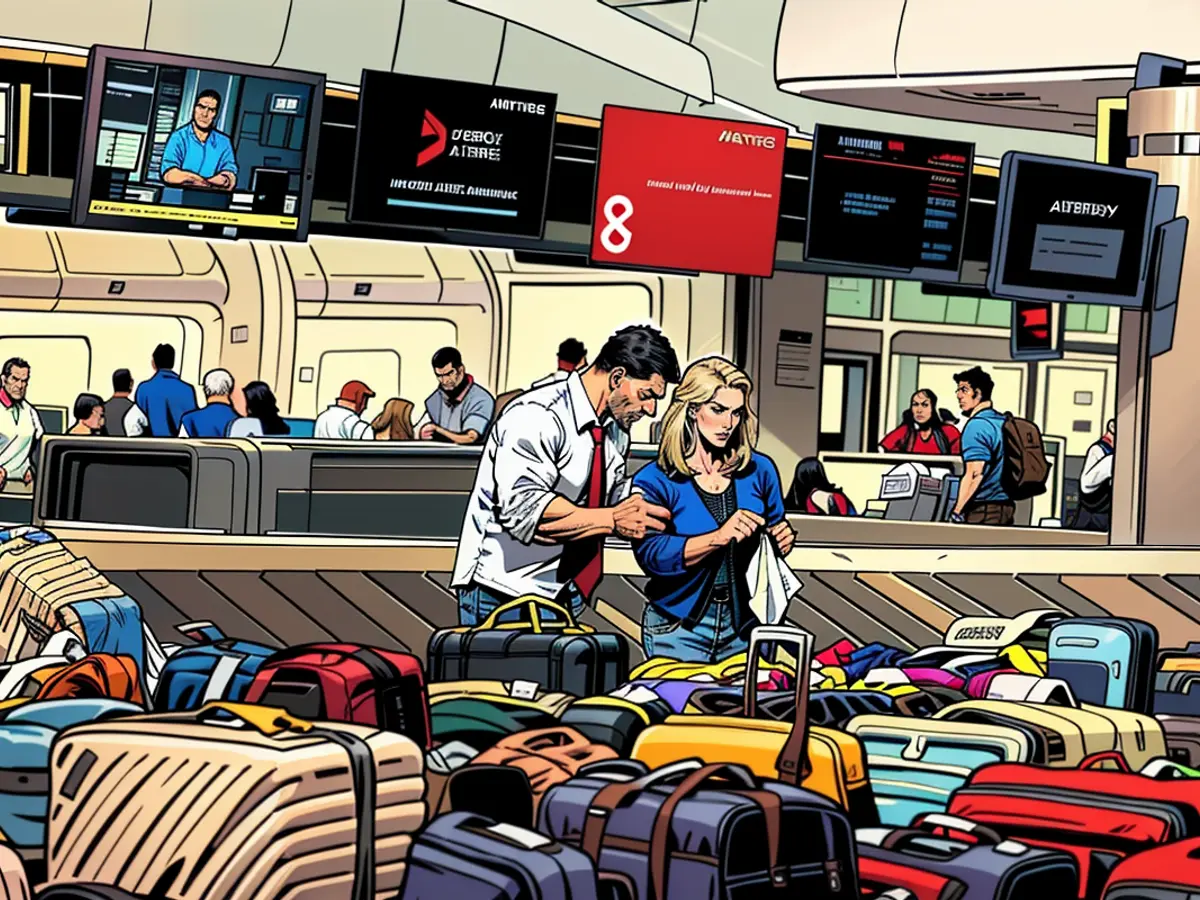39% of Americans worry they can’t pay the bills
Nearly four in ten (39%) of US adults say they worry most or all of the time that their family’s income won’t be enough to meet expenses, according to a new CNN poll. That’s up from 28% who expressed those concerns in December 2021, and it’s similar to the numbers seen during the Great Recession (37%).
To cope, significant shares of Americans said they are adding side jobs, cutting down on driving and putting more expenses on credit cards.
Even higher percentages of Latino (52%) and Black (46%) Americans said they’re worried most or all of the time about making ends meet, according to the poll.
More than half (55%) of those making less than $50,000 a year similarly worry about having enough money to meet expenses.
The findings underscore how, despite national statistics that show unemployment is low and inflation is cooling, millions of Americans are hurting from years of rising prices.
“The grocery store is just outrageous right now. But it’s not just that. Everything has gone up. Clothing. My insurance,” said Angela Russell, an Ohio resident who works as a program analyst at the Centers for Disease Control and Prevention (CDC).
Russell, who has two adult children and three grandkids, said she recently moved out of her rental home in Cincinnati in favor of one in a rural area where the rent is cheaper.
Two-thirds of Americans (65%) say in an open-ended question that expenses and the cost of living are the biggest economic problem facing their family today. That’s down from 75% in the summer of 2022 but well ahead of the 43% who mentioned an issue related to expenses in the summer of 2021.
The typical household is spending $925 more a month to purchase the same goods and services as three years ago, according to Moody’s Analytics.
“The pressure is real. Everything is so much more expensive than it was four years ago. It’s astronomical what you’re paying,” said Russell.
Inflation is down. Prices aren’t
The rate of inflation has eased sharply: Consumer prices increased by 3% year-over-year in July, according to the Bureau of Labor Statistics. That’s a dramatic improvement from the peak of 9% in June 2022 when gas prices spiked above $5 a gallon.
Yet many Americans are not really feeling that improvement. Prices are still higher than they were last year – they’re just rising at a slower pace. And consumers are still trying to catch up to the price spikes of 2022 and 2023.
“We can talk all day about how inflation is moderating but the cumulative impact of several years’ worth of inflation has done a number on household budgets,” said Greg McBride, chief financial analyst at Bankrate. “The view from 35,000 feet is unemployment is low, the economy is growing and people are spending money. The reality on the ground is moderating inflation doesn’t mean prices are coming down, just that they aren’t going up as fast.”
Some good news: Paychecks have also grown over the past three years. Lately, they’ve been growing faster than prices, reversing a years-long troubling trend.
Median household incomes are $1,110 bigger than three years ago, according to Moody’s Analytics. That outpaces the $925 more that people are spending for the same goods and services.
Side hustles and spending less
But not everyone is making more money.
“Many have seen their buying power eroded. Even if your income has kept up with prices, you’re just treading water,” said McBride.
To get by, many people are being forced to find additional income.
The CNN poll showed that 35% of adults say they’ve recently had to take on extra work to make ends meet. Even higher percentages of Latinos (52%), Black Americans (44%) and those under the age of 45 (47%) say they’ve taken extra work.
As a result of current economic conditions, most Americans say they’ve had to cut back on spending on extras and entertainment (69%) and changed their grocery buying (68%), according to the CNN poll.
Others say they’ve cut back on driving (41%) and they are taking on credit card debt to afford necessities (37%). The share of Americans who’ve cut back on driving is down from 54% in spring 2022, but the shares cutting back on discretionary spending and watching their grocery budgets have seen little downward change over the past two years.
Russell, the Ohio woman who works at the CDC, said her pay is at the mercy of the federal budget – and doesn’t include the bonuses or stock options that people working in other industries rely on. “Literally everything seems like it’s outpacing what I earn,” she said.
Russell has shifted her spending to focus on essentials by canceling most of her streaming services, going to the movies less often and buying candy at Walmart instead of at the movie theater when she does go.
“I’ve had to cut back on all the fun things I like to do. I used to go to the bookstore or get magazines. Now, I get books from the library,” she said.
The CNN poll was conducted by SSRS from June 3-24, before President Joe Biden dropped out of the 2024 presidential race on July 21, among a random national sample of 2,021 adults initially reached by mail, and 407 adults reached by random digit dialing to a sample of prepaid cellphone numbers. Surveys were either conducted online or by telephone with a live interviewer. Results for the full sample have a margin of sampling error of plus or minus 2.7 percentage points; it is larger for subgroups.
CNN’s Ariel Edwards-Levy and Dana Elobaid contributed reporting.
Businesses may be struggling to keep up with the rising costs, as shown by the 35% of adults who have taken on extra work to make ends meet. Despite the eased rate of inflation, many consumers are still feeling the impact of previous price spikes, leading them to cut back on spending and rely on credit cards for necessities.








